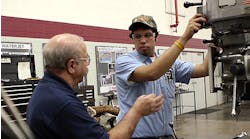Are we in a recession? Will there be a recession this year? I certainly don’t know, and at this point it seems important to emphasize that no one knows. That has not prevented “recession” from becoming the buzzword of this new year. It’s the term everyone wants to squeeze into their conversation to indicate they’re tuned in, each one applying it to convey something they think it means, or just something they think.
But, “recession” has a very specific meaning according to the National Bureau of Economic Research, the independent research group dedicated to promoting a greater understanding of how the economy works. For decades the NBER’s definition of a recession — two consecutive quarters of declining real gross domestic production — has been accepted by investors, financiers, the government, and journalists.
So, to be clear, as of December 2007 we have not seen two consecutive quarters of declining GDP. That’s definitive enough to answer my original question, but not enough to quit the buzzing. So, let’s go further. The NBER also offers indicators of recessionary trends, including:
- Employment levels, which the U.S. Treasury Dept. recently reported is at 5%, up somewhat, though hardly a peak;
- Industrial production activity, which did not grow in December, and declined at an annual rate of 1%;
- Personal income levels, which rose in the most recent report, though not as much some forecasters had predicted;
- And finally, manufacturing and trade sales income, which grew at a rate over 2% in the second half of 2007. Not too bad, it seems.
There’s one more aspect to all this recessionary buzz: it’s possible that certain sectors of the economy (eg., retail, or manufacturing) or some regions (Michigan, for example, or the Midwest generally) could be holding back overall growth. But, even that doesn’t seem to be a sufficient reason for the stock market to be tumbling and politicians to be scrambling.
So I think it’s revealing that stock traders and politicians are the ones panicking about a recession. While most of us are still trying to remember to write “2008” on our checks, they have rushed to promote the notion that the economy is on the ropes. No time to lose: we must have a federal stimulus package.
What sort of stimulus is needed? And how much? Is it possible that new government spending could make any of the problems worse? What if it’s too late to stop the damage? No time for any of those details, it seems. Something must be done, and fast.
The modern economy is complex and diverse: it encompasses real assets and speculative activity. It is affected by individuals, institutions, governments, commodities, utilities, and even the weather. It is local, regional, national, and global.
But, leveling out all of these measures and influences is ignorance. No one knows everything, and that makes a little bit of information very valuable. It also makes a little bit of anxiety dangerous.
What makes the modern economy so frustrating is that it remains so human. Higher valuations and speedier responses have only heightened our sense that the economy is volatile. It hasn’t been “perfected” like so many other things in modern life, and its uncertainty can lead us to irrationality.
The truth about predicting a recession is that the “two consecutive quarters” rule means nobody ever is certain until the slowdown is at least six months along, by which time it’s likely to be past. So, even though no one overlooked the faltering U.S. housing sector in last quarter of 2007, now in January the cash-short brokers and the vote-hungry politicians are spreading the gloom.
Are we in a recession? Maybe so. I will argue we are not, and by definition I would be right. But, more important, I will stress those facts because I want them to be so, remembering that frequently it’s the desire for something to be true that makes an argument persuasive.









